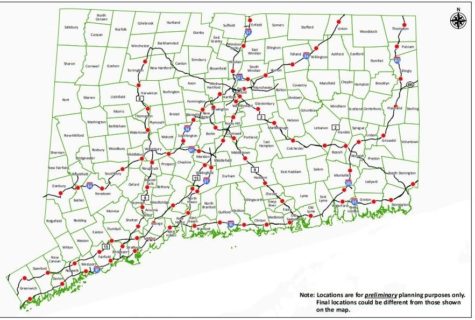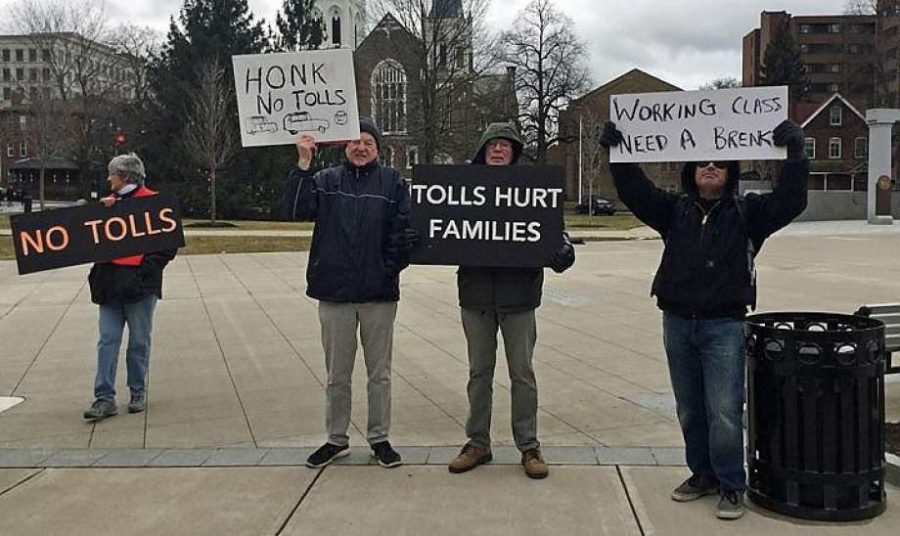Tolls: Are They Good for Connecticut?
Protest for no tolls

The newly elected governor of Connecticut, Ned Lamont, is under fire and facing protests for going back on his campaign promise to toll only trucks.
After pledging in his campaign speeches to implement tolls to trucks only, people decided that it’d be a good way for the state to earn revenue without any of it coming out of their pocket. But barely a month into his term, Ned Lamont has already gone back on this matter. People are outraged because we’re already one of the highest taxes states in the US, coming in 2nd place in highest combined income and sales tax behind only New York, and people are beginning to think that their taxes are going to waste. “It’s another way of taking more money from private citizens and the state can’t afford to have more citizens and industry leaving.” says Jon Hobbs, who is a Hall father and a Connecticut tax payer, is tired of his money going to waste. “If retailers have to pay more money for freight, then that means that their profit margins don’t go down, and the cost of goods go up. Another hidden cost is that when people get delivery products, then they’re not going to lose profit margin they’re going to increase prices to offset the increase in tolls”, Jon added solidifying the point.
Hall Senior, Nefari Hassan, thinks that Connecticut should not implement tolls to generate more revenue, but instead invest the current stream toward better investments and cut the pay of politicians. “I guess the first thing we should start at is the payroll of the politicians. They probably shouldn’t get paid if they’re just going to bicker all the time” he said. He also thinks that even when we toll trucks alone, that the businesses would hike the prices rather than lose profit margins, making it also more expensive in the long run.
Another angle people are taking is the fact that this would harm working class Connecticut residents, while a toll initially isn’t a lot of money, with time and consistency, that money adds up. Paying money to get to work not only hurts the working class directly, but also indirectly by taking the small amount of money the state hasn’t already raced away from you.
The state of New Jersey has made $1.5 billion through tolls, and at first this sounds great for the state, but in digging a bit deeper, you come to remember that all $1,500,000,000 came from people just trying to get from point A to point B. They are essentially being punished for driving through their state, contributing to their economy. You could make the argument saying that all other New England states do it so why not CT. This helps give us a leg up, a selling point for Connecticut. It sets us apart from the other New England states. With the tolls coming supposedly in 2023, we soon will find out how effective this move will be.






